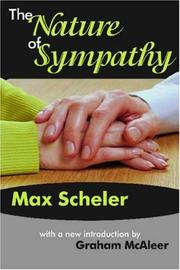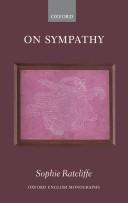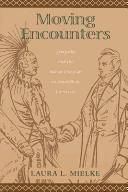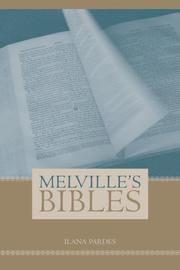| Listing 1 - 8 of 8 |
Sort by
|

ISBN: 1412806879 9781412806879 Year: 2008 Publisher: New Brunswick, N.J. Transaction
Abstract | Keywords | Export | Availability | Bookmark
 Loading...
Loading...Choose an application
- Reference Manager
- EndNote
- RefWorks (Direct export to RefWorks)
Sympathy --- Pity --- Conduct of life --- Emotions --- Appeal to pity (Logical fallacy) --- Political philosophy. Social philosophy --- Philosophical anthropology --- Sympathy.
Book
ISBN: 1283396904 9786613396907 3110209292 9783110209297 9783110203509 3110203502 Year: 2008 Publisher: Berlin New York W. de Gruyter
Abstract | Keywords | Export | Availability | Bookmark
 Loading...
Loading...Choose an application
- Reference Manager
- EndNote
- RefWorks (Direct export to RefWorks)
Wolframs von Eschenbach Willehalm zählt zu den meistdiskutierten Dichtungen des deutschen Hochmittelalters. Die Forschung ist sich bis heute nicht einig, inwieweit dieser Text als Plädoyer für Kreuzzugsideologie, für Toleranz oder gar für Menschlichkeit zu lesen ist. Außerdem kämpft man ebenfalls bis heute mit dem schwer fassbaren, scheinbar widersprüchlichen Helden Willehalm. Das vorliegende Werk sieht einen Schlüssel zu diesen bedeutenden Fragen im empathielenkenden Potential bestimmter Textstrukturen in Bezug auf den mittelalterlichen Rezipienten: Wie, wann und für vermag der Text dessen Empathie, Mitleid oder gar Sympathie zu wecken? Mit wem fühlte, weinte und lachte der mittelalterliche Hörer oder Leser? Ergibt sich auf diesem Wege ein kohärentes Bild der fremden Heiden und des umstrittenen Helden? Über die Untersuchung des wolframschen Willehalm, seines altfranzösischen Vorlagentextes Aliscans und einer spätmittelalterlichen Stoffbearbeitung Hystoria von dem wirdigen ritter sant Wilhelm erweist sich das in der Forschungsarbeit präsentierte Analysemodell als praktikabler und gewinnbringender Zugang zu mittelalterlichen Texten: Alternative Lesarten können aufgezeigt werden, und die Sonderstellung des wolframschen Werkes erscheint am Ende in neuem Licht.
German literature --- Empathy in literature. --- Sympathy in literature. --- History and criticism. --- Wolfram, --- Empathy. --- Willehalm. --- compassion. --- reception (literature). --- sympathy.
Book
ISBN: 9783110203509 Year: 2008 Publisher: Berlin ; New York Walter de Gruyter
Abstract | Keywords | Export | Availability | Bookmark
 Loading...
Loading...Choose an application
- Reference Manager
- EndNote
- RefWorks (Direct export to RefWorks)
Empathy in literature --- German literature --- Sympathy in literature --- History and criticism --- Wolfram,
Book
ISBN: 1282157752 9786612157752 1400828953 9781400828951 9780691137469 0691137463 9780691154466 0691154465 9781282157750 6612157755 Year: 2008 Publisher: Princeton : Princeton University Press,
Abstract | Keywords | Export | Availability | Bookmark
 Loading...
Loading...Choose an application
- Reference Manager
- EndNote
- RefWorks (Direct export to RefWorks)
In Thinking of Others, Ted Cohen argues that the ability to imagine oneself as another person is an indispensable human capacity--as essential to moral awareness as it is to literary appreciation--and that this talent for identification is the same as the talent for metaphor. To be able to see oneself as someone else, whether the someone else is a real person or a fictional character, is to exercise the ability to deal with metaphor and other figurative language. The underlying faculty, Cohen argues, is the same--simply the ability to think of one thing as another when it plainly is not. In an engaging style, Cohen explores this idea by examining various occasions for identifying with others, including reading fiction, enjoying sports, making moral arguments, estimating one's future self, and imagining how one appears to others. Using many literary examples, Cohen argues that we can engage with fictional characters just as intensely as we do with real people, and he looks at some of the ways literature itself takes up the question of interpersonal identification and understanding. An original meditation on the necessity of imagination to moral and aesthetic life, Thinking of Others is an important contribution to philosophy and literary theory.
Empathy. --- Metaphor. --- Attitude (Psychology) --- Caring --- Emotions --- Social psychology --- Sympathy --- Parabole --- Figures of speech --- Reification --- Empathy --- Metaphor --- Literary semiotics --- Psychological study of literature
Book
ISBN: 9783451273759 3451273756 Year: 2008 Volume: 5 Publisher: Freiburg: Herder,
Abstract | Keywords | Export | Availability | Bookmark
 Loading...
Loading...Choose an application
- Reference Manager
- EndNote
- RefWorks (Direct export to RefWorks)
Empathy --- Phenomenological psychology --- Psychological phenomenology --- Psychology, Phenomenological --- Existential psychology --- Personality --- Phenomenology --- Psychology --- Attitude (Psychology) --- Caring --- Emotions --- Social psychology --- Sympathy --- Theory of knowledge --- Philosophy of mind --- Empathie --- Psychologie phénoménologique --- Philosophie de l'esprit --- Empathy. --- Phenomenological psychology.

ISBN: 9780199239870 0199239878 0191716790 0191553670 1281852872 9786611852870 Year: 2008 Publisher: Oxford Clarendon
Abstract | Keywords | Export | Availability | Bookmark
 Loading...
Loading...Choose an application
- Reference Manager
- EndNote
- RefWorks (Direct export to RefWorks)
Authors and readers. --- Books and reading --- English literature --- Literature and morals. --- Reader-response criticism. --- Sympathy in literature. --- Philosophy. --- History and criticism --- Theory, etc. --- Authors and readers --- Literature and morals --- Reader-response criticism --- Sympathy in literature --- Reader-oriented criticism --- Reception aesthetics --- Criticism --- Reading --- Literature --- Morals and literature --- Ethics --- British literature --- Inklings (Group of writers) --- Nonsense Club (Group of writers) --- Order of the Fancy (Group of writers) --- Appraisal of books --- Books --- Choice of books --- Evaluation of literature --- Reading, Choice of --- Reading and books --- Reading habits --- Reading public --- Reading interests --- Reading promotion --- Readers and authors --- Authorship --- Philosophy --- History and criticism&delete& --- Theory, etc --- Influence --- Moral and ethical aspects --- Appraisal --- Evaluation

ISBN: 1613761309 9781613761304 9781558496309 1558496300 9781558496316 1558496319 Year: 2008 Publisher: Amherst University of Massachusetts Press
Abstract | Keywords | Export | Availability | Bookmark
 Loading...
Loading...Choose an application
- Reference Manager
- EndNote
- RefWorks (Direct export to RefWorks)
Sympathy in literature. --- Indians in literature. --- American literature --- Indians of Central America in literature --- Indians of Mexico in literature --- Indians of North America in literature --- Indians of South America in literature --- Indians of the West Indies in literature --- History and criticism.

ISBN: 1281385719 0520941527 9786611385712 1435653777 9780520941526 9781281385710 9780520254541 0520254546 9780520254558 0520254554 Year: 2008 Publisher: Berkeley [etc.] University of California Press
Abstract | Keywords | Export | Availability | Bookmark
 Loading...
Loading...Choose an application
- Reference Manager
- EndNote
- RefWorks (Direct export to RefWorks)
Many writers in antebellum America sought to reinvent the Bible, but no one, Ilana Pardes argues, was as insistent as Melville on redefining biblical exegesis while doing so. In Moby-Dick he not only ventured to fashion a grand new inverted Bible in which biblical rebels and outcasts assume center stage, but also aspired to comment on every imaginable mode of biblical interpretation, calling for a radical reconsideration of the politics of biblical reception. In Melville's Bibles, Pardes traces Melville's response to a whole array of nineteenth-century exegetical writings-literary scriptures, biblical scholarship, Holy Land travel narratives, political sermons, and women's bibles. She shows how Melville raised with unparalleled verve the question of what counts as Bible and what counts as interpretation.
American fiction --- Religion and literature --- Religion and culture. --- Bible and literature. --- Literature --- Literature and religion --- Culture and religion --- Culture --- Literature and the Bible --- History and criticism. --- History --- Moral and religious aspects --- Melville, Herman, --- Melville, Herman --- Melvill, German --- Melville, Hermann --- Meville, Herman --- Melvil, Cherman --- Mai-erh-wei-erh, Ho-erh-man --- Melṿil, Herman --- Tarnmoor, Salvator R. --- מלוויל, הרמן, --- מלויל, הרמן, --- ميلڤيل، هرمن، --- 麥爾維爾, --- Virginian spending July in Vermont, --- Melvill, Herman, --- Religion. --- Bible --- Hermeneutics. --- Religion --- Commentaries --- Hermeneutics --- Bible and literature --- Religion and culture --- United States --- 19th century --- History and criticism --- 19th century american literature. --- american literature. --- antebellum american culture. --- bible. --- biblical exegesis. --- biblical interpretation. --- biblical outcasts. --- biblical rebels. --- biblical scholarship. --- christianity. --- conflict. --- good and evil. --- hardship. --- holy land travel narratives. --- idolatry. --- job. --- jonah. --- leviathan. --- literary scriptures. --- melville. --- moby dick. --- old testament. --- political sermons. --- politics of biblical reception. --- possession. --- rachel. --- redemption. --- religion. --- spiritual. --- sympathy. --- womens bibles.
| Listing 1 - 8 of 8 |
Sort by
|

 Search
Search Feedback
Feedback About UniCat
About UniCat  Help
Help News
News